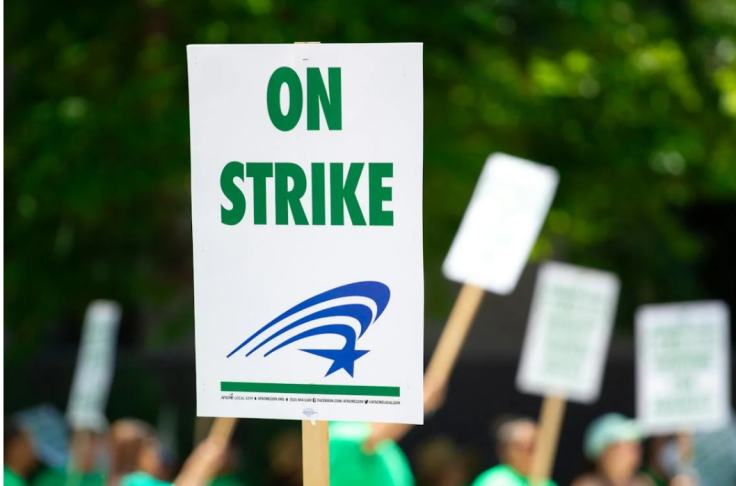Tensions are escalating within the California State University (Cal State) system as faculty members from four campuses prepare for one-day strikes next month if a contract agreement remains elusive.
The California Faculty Association, representing approximately 29,000 Cal State employees, has been engaged in protracted negotiations with the university system, grappling with contentious issues such as pay raises, parental leave, and workplace conditions. As the strike threat looms, it underscores broader challenges in higher education labor relations, with faculty demanding fair compensation and improved working conditions.

Stalemate in Contract Negotiations
The faculty union members at Cal Poly Pomona, Cal State LA, San Francisco State, and Sacramento State have each designated a different day in December for the planned strikes, emphasizing their determination to address pressing concerns. Contract negotiations have reached a standstill, with crucial matters like pay raises and parental leave unresolved. The faculty union's request for a 12% salary increase for the current fiscal year faced rejection from the Cal State system, which countered with a proposed 15% increase over three years, at 5% annually-an offer subsequently rejected by the union.
Parental leave, another contentious issue, remains a sticking point in negotiations. The faculty association seeks improvements in parental leave policies, advocating for better work-life balance for its members. The university system's response to these demands will significantly impact the course of negotiations and potentially influence the faculty's decision on whether to proceed with the strikes.
Workplace Conditions and Gender-Inclusive Facilities
The contract dispute extends beyond financial matters, highlighting broader concerns about workplace conditions and inclusivity. Faculty members are pushing for gender-inclusive restrooms and lactation rooms in every campus building. However, the Cal State system has deemed these accommodations too costly to implement. This clash reflects the ongoing struggle within higher education institutions to balance financial constraints with the need for inclusive and equitable workplace environments.
Union President Charles Toombs emphasized that faculty members are unwavering in their commitment to fair compensation and improved working conditions. Toombs asserted that Cal State management needs to recognize the value of its faculty and address the legitimate concerns raised by the union. The looming strikes signal that faculty members are prepared to take decisive action to secure what they believe they deserve.
Larger Implications in the National Higher Education Labor Landscape
The faculty strikes at Cal State contribute to a broader trend of labor activism within higher education. Earlier this year, graduate workers at Temple University in Philadelphia and the University of Michigan staged prominent strikes, drawing attention to labor issues within academia.
The significance of the Cal State strikes is magnified due to the system's sheer size, enrolling nearly 458,000 students and employing approximately 53,000 faculty and staff. The impact of potential disruptions resulting from the strikes could ripple through the expansive Cal State system, affecting students and faculty alike.
In response to the impending strikes, the Cal State system has developed contingency plans to minimize disruptions caused by the walkouts. The system remains hopeful that a tentative agreement can be reached with the faculty union to avert the strikes. While only some classes may be canceled during the walkouts, the potential for disruptions underscores the urgency of finding common ground between the faculty union and the university system.
The looming one-day strikes at California State University highlight the complex dynamics surrounding higher education labor relations. As faculty members stand firm on their demands for fair compensation, improved working conditions, and gender-inclusive facilities, the outcome of these negotiations holds implications not only for the Cal State system but also for the broader national discourse on labor rights within academia.
The next few weeks will be critical in determining whether the parties can find common ground or if the faculty strikes will become a reality, making a lasting impact on the landscape of higher education labor relations in California and beyond.
© 2026 University Herald, All rights reserved. Do not reproduce without permission.








